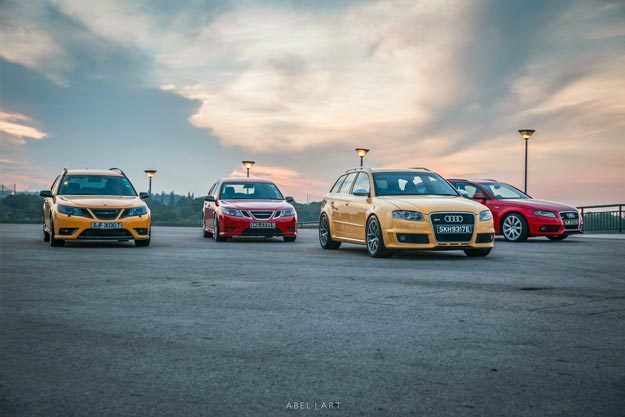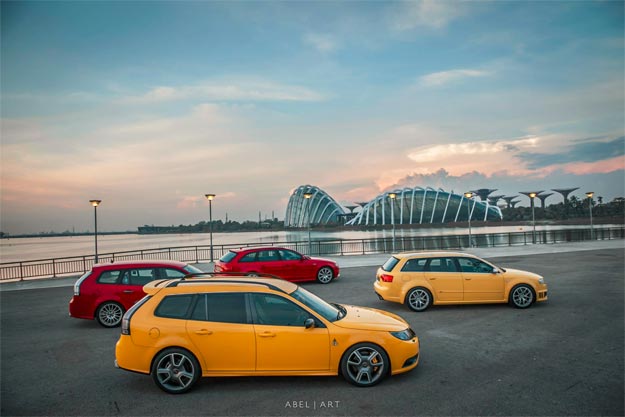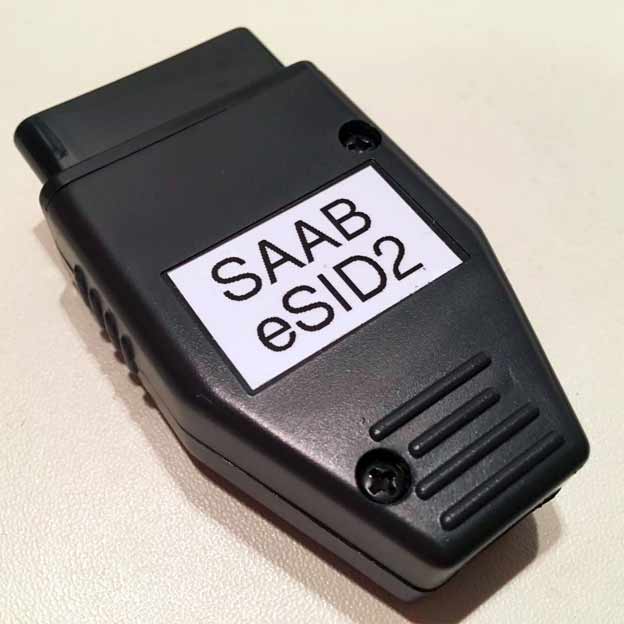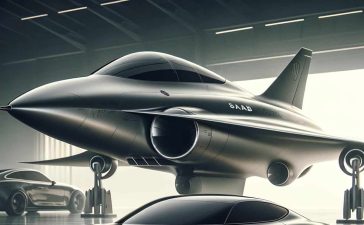Table of Contents
- 1 Introduction
- 2 Power and Performance — Where Saab Takes the Lead
- 3 Handling and Ride Quality — Saab’s Unique Engineering Advantage
- 4 Exterior Design — Distinctive Scandinavian Styling Over Conventional Looks
- 5 Interior Features and Comfort — Saab’s Dedication to Luxury and Practicality
- 6 Reliability and Warranty — Saab’s Customer-First Approach
- 7 Safety and Security — Saab’s Legacy of Protecting Drivers
- 8 Conclusion — The Saab 9-3’s Timeless Appeal Over the Audi A4
Introduction
The 2009 Saab 9-3 2.0T Sports Sedan wasn’t just another entry-level luxury vehicle; it was Saab’s response to the Audi A4, aimed at delivering unmatched value, performance, and Scandinavian style.
In a recently uncovered training video, Saab demonstrated to their sales teams just how the 9-3 outshone the A4, empowering dealerships to emphasize Saab’s unique strengths over its German rival. For Saab enthusiasts and owners, this comparison remains a testament to Saab’s enduring appeal. Let’s dive into the key aspects of this comparison to see how Saab’s engineering and design choices made the 9-3 a standout vehicle.
While the 2009 Saab 9-3 2.0T Sports Sedan shines in many areas, it’s worth noting that this perspective comes from a sales-driven comparison. These types of videos are crafted to emphasize the 9-3’s strengths over the competition, sometimes glossing over certain shortcomings or inconsistencies and occasionally exaggerating certain features to bolster Saab’s appeal.
This kind of presentation is common in the automotive world, where the aim is to position each model in the best possible light, playing up unique features while downplaying any areas where the competition may hold an edge. For Saab fans, though, the video remains a nostalgic look back at what made their 9-3 a compelling choice—one that’s still appreciated today.
Power and Performance — Where Saab Takes the Lead
When it comes to premium sports sedans, performance is paramount. Both the Saab 9-3 2.0T Sports Sedan and Audi A4 2.0 TFSI boasted turbocharged engines capable of impressive power. The 9-3 featured a 2.0-liter inline-4 with 210 horsepower and 221 lb-ft of torque, while Audi’s redesigned A4 packed a slightly more powerful engine with 258 lb-ft of torque. However, the Saab 9-3 came out ahead in real-world performance. Why? The 9-3’s lighter curb weight—over 200 lbs less than the A4—gave it a 6% advantage in power-to-weight ratio. This means that the Saab’s agility and acceleration were more responsive, despite the Audi’s marginally higher torque.

Not only did the Saab deliver better EPA-rated highway mileage (1-2 MPG better, depending on transmission), but it also offered a six-speed manual option that added to the driving thrill. The 9-3’s balanced engineering allowed it to hold its own in acceleration, passing maneuvers, and fuel efficiency—a combination that few cars in its class could match.
Handling and Ride Quality — Saab’s Unique Engineering Advantage
Both the Saab 9-3 and Audi A4 delivered solid handling through advanced suspension systems and four-wheel disc brakes. However, the Saab 9-3 went a step further with its ReAxs rear suspension system, a unique setup that offered faster response to steering inputs and reduced understeer. This feature gave the 9-3 an edge in handling precision over the A4, making it the more agile choice on twisty roads.
Additionally, the 9-3 provided buyers with flexibility in choosing between front-wheel drive and Saab’s proprietary XWD cross-wheel drive system. In contrast, the A4 came only with the more expensive Quattro all-wheel drive, which added to its MSRP. Saab’s option for front-wheel drive also helped it secure better fuel economy, giving drivers the choice to save on initial costs and at the pump without sacrificing performance.
One of Saab’s lasting appeals has been its unmistakably Scandinavian design. Even in 2009, the 9-3 2.0T Sports Sedan’s bold and distinctive styling stood out against the more subdued, conservative lines of the Audi A4. Saab’s designers aimed to make the 9-3 unique, prioritizing features like rain-sensing windshield wipers (standard on the 9-3, optional on the A4) and available Xenon cornering headlamps—features that provided both practical benefits and aesthetic appeal.

While the A4 followed a design philosophy typical of European sedans, the 9-3’s Scandinavian flair and Saab’s aeronautic-inspired touches set it apart. Saab owners appreciated this standout styling, which still turns heads today and has aged gracefully over the years, unlike many of its more conventional competitors.
Interior Features and Comfort — Saab’s Dedication to Luxury and Practicality
Inside the cabin, both the Saab 9-3 and Audi A4 offered luxurious appointments, but Saab took it a step further with standard features that were extra-cost options on the A4. The 9-3’s interior came equipped with features like a driver information system and optional natural premium semi-aniline leather seats. Saab’s focus on driver comfort and functionality extended to its standard Bluetooth connectivity, something that A4 buyers would need to pay extra for.
In terms of infotainment, Saab’s OnStar with turn-by-turn navigation gave drivers an added layer of convenience and safety. Audi, on the other hand, offered no comparable telematics service, which left Saab as the better-equipped option in terms of modern connectivity and emergency support—a critical consideration for buyers prioritizing safety and convenience.
Reliability and Warranty — Saab’s Customer-First Approach
One area where Saab really differentiated itself was in customer support and warranty services. The 2009 Saab 9-3 included factory-backed courtesy transportation for warranty repairs and a three-year, 36,000-mile no-charge maintenance program. These offerings highlighted Saab’s commitment to providing a worry-free ownership experience.

In contrast, Audi provided no comparable maintenance program, which meant that Saab buyers enjoyed the peace of mind of knowing that scheduled maintenance costs were covered. For owners looking to minimize the hassle of unexpected expenses, Saab’s customer-first approach offered an undeniable advantage over Audi.
Safety and Security — Saab’s Legacy of Protecting Drivers
Safety has always been a cornerstone of Saab’s engineering philosophy. The 9-3 2.0T Sports Sedan incorporated several safety features that weren’t available on the A4, including active head restraints and night panel functionality to reduce driver distraction at night. Saab’s ComSense technology and OnStar emergency response services underscored the brand’s dedication to both active and passive safety features.
While the Audi A4 offered respectable safety features, it couldn’t match Saab’s comprehensive package that combined collision-prevention technologies with post-accident support through OnStar. For Saab owners, these unique safety offerings were not only about peace of mind but also a testament to Saab’s relentless commitment to driver and passenger well-being.

Conclusion — The Saab 9-3’s Timeless Appeal Over the Audi A4
The 2009 Saab 9-3 2.0T Sports Sedan remains an impressive machine, offering a unique blend of performance, safety, and value that has resonated with Saab fans and car enthusiasts alike. With its lightweight agility, innovative suspension, Scandinavian styling, and luxury features at a lower price than the Audi A4, the Saab 9-3 proved to be a well-rounded package.
Today, Saab owners and potential buyers can still appreciate the 9-3’s standout qualities over the A4, which speak to Saab’s commitment to building cars with character, innovation, and driver-focused design. For those curious to witness this comparison firsthand, be sure to check out Marcus & Manuela’s latest video and see why the Saab 9-3 continues to hold a special place in the hearts of its drivers.












More than happy with my Saab Convertible ’05 turbo 😃
If you own a Saab you will never want own or drive a different make of cars.
Swede vs German, only one outcome, SWEDE ALL DAY.
Have owned both A4 and 3 other Audis along with 10 Saabs over the years. Wish Saab was still around my true love
I’ve actually been considering selling my 2.8 Aero and buying an Audi S4. Drove an S4 a few months back and loved it. Just struggling to justify the cost difference right now, as my Saab drives superbly. Will hang on to it for a while longer methinks
interior quality is much better on the Audi, but otherwise…I dunno.
do not make the same mistake like me long time ago. Sold my 1999Saab 9/3 LPT best cat I ever owned. Sold it 13 years later but it looked like new inside and out after 13 years
What year S4? If it’s the V8 then you would be downgrading for something slow. The Saab 2.8T has a good mod market. But the 3.0 V6 S4 is also very good for mods.
The little hp advantage of the Audi can be negated by a « simple » 3 inch turbo outlet tube upgrade and a tune.
Had a Saab 9-3 from this generation. Nice looking but a little bit flimsy compared to the Audi. Let’s not sugar coat it, it is a rebadged Opel….
Not even close to an Opel. True automobile fan would know that there are 6 more brands on the platform and Saab defeats them in terms of performance, quirkiness and durability
At that time, Volvo was the Swedish car brand over Volvo, but now the car brand is owned by China’s Communist Party from the year 2010. Chinese-owned car brands should not be bought because of China’s arms deliveries to Russia’s war against Ukraine. North Korea has already sent soldiers to Russia, when will the Chinese Communist Party send soldiers?
Saab is a nicer character, drives just as well and looks way better. Why would you want an Audi.
Saab looks young until now
In Australia the A5 comes with 150kw and 340nm 2 litre turbo engine, really Saab 9-3 2.0T easily past that torque and matched that power more than 20years ago! With Audi you need a A5 S which is around 120k AUD 😱
I own both (MY08 Saab 93 & Audi B7 RS4 Avant). To be honest, I love Saab bit more 🙂
i never owned saab but i like it more then aud
180 TTurbo 93 ,was class, looked tame, went fast
I remember the “debates” between SAABs and other brands, the plastic-feeling interior and the GM un-support was 2 major points against.
And the worst negative, “It’s not German”. 😖
08-09 GM “Buick” Saabs was the best. Especially the poverty package entry level 2.0T the best one out of them all to gain horses. 2010 to 12 were lemons electronically. When GM ditched that 6T turd engine in the Aeros for the 2.0T I wish they made some more performance changes that was stock. That engine can take an absolute beating. The XWD system they took from the Buick SUV was a lemon of a system.